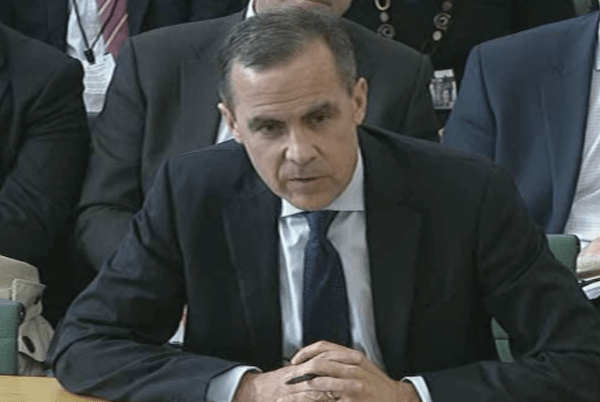If Mark Carney had any reservations about his move to Threadneedle Street later this year, he might now add to his list regular sessions with the Treasury Select Committee. His three-and-a-half hour hearing included a quiz from Committee member David Ruffley on his ability to explain capital ratios and other terms, questions on how many mistakes he’d be happy for staff to make, whether he wanted to rename the Bank’s Court, and whether he’d judge his success on the return of growth to the economy during his tenure.
The MPs also started their session with a bit of a grump about his £874,000 pay package, although as James Barty argued in this morning’s City AM, the cost to the economy of wrong decisions under a less well-paid governor is far greater than even this generous remuneration package. Andrea Leadsom quite kindly told Carney she thought he’d probably earn every penny of the salary in any case. The next Governor must have felt he should already get a bonus after that marathon grilling.
Mind you, Carney looks more than a match for even some of the most formidable members of this committee. He didn’t seem particularly ruffled at any point, although it’s easy to remain calm when you’re being asked more about where you stand on certain areas of monetary policy than when something has gone badly wrong on your watch. But he also appeared relaxed about the idea of being outvoted by the Monetary Policy Committee, saying only that he would ‘like to be on the right side more often than not’. He also took care to flatter members of the committee, telling them early on that they were visibly successful people, and dropping casually into conversation a reference to Jesse Norman’s piece on quantitative easing in today’s Times.
He was also careful to avoid nailing his colours to the mast on any of the big questions that the MPs were interested in. One of the most intriguing issues was on whether he does indeed support ditching the current inflation target in favour of a nominal GDP target (where monetary policy is set based on growth as well as inflation). Now that he was talking specifically about the Bank of England rather than the Bank of Canada, Carney chose his words carefully, saying his own view was that dropping the inflation target might not be a ‘risk worth taking’ and that making full use of the flexible inflation target policy could well achieve the same thing. But he added:
‘The response to remarks that I made and what was read into remarks that I made suggests an appetite at least to me for a proper debate about the monetary policy framework. I note that the Chancellor said he welcomed that debate… The bar for change is high but there should be a debate…’
It was important to ensure there was ‘buy-in’ to the policy, Carney added. He clearly fancies a good public chinwag, not just about the target but also about QE (which will please Jesse Norman), offering his services to the Committee’s inquiry into the the policy. But Carney clearly doesn’t want to spend his five years in the job stroking his chin about the Bank’s remit. ‘I don’t think prolonged uncertainty about the framework is in anyone’s interest,’ he said.
Towards the end of the hearing Pat McFadden asked whether Carney was wary of facing unrealistic expectations when he took up the job. Today’s hearing suggested that George Osborne had indeed got his man in appointing Carney outside the application process. But as the new Governor told MPs, what matters more is whether you generate fewer headlines on your exit from a role than when you first arrive.







Comments